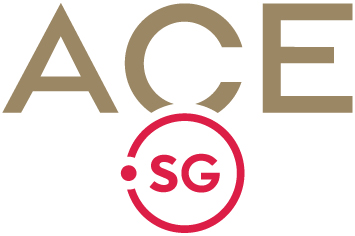The Straits Times: S’pore SMEs cite high costs, lack of wellness facilities in workplaces as key challenges: Milieu-JustCo study
SINGAPORE – High costs and a lack of wellness facilities are key challenges as smaller firms here instigate hybrid work arrangements and prioritise employee well-being, a survey noted.
It found that bosses of small and medium enterprises (SMEs) face budget constraints and steep prices when sourcing office locations, while employees and managers cite the lack of amenities such as a well-stocked pantry and relaxation areas.
The online survey of 800 SMEs was commissioned by co-working operator JustCo and conducted by consumer research firm Milieu Insight from March 26 to April 7.
It found that 63 per cent of respondents cited high costs and limited budget flexibility when looking for office space, while 52 per cent said there was a lack of affordable options in their desired locations and 44 per cent find long-term rental lease commitments challenging.
The poll also highlighted that 36 per cent of respondents struggle with offices that cannot adapt to changing needs and 35 per cent find restrictions on lease terms problematic.
SMEs are prioritising the happiness and well-being of their employees when choosing workplaces.
Relaxation areas, a well-stocked pantry and ergonomic office furnishings were cited as key features firms look for in an office. Respondents also noted that office location, which affects commute times, and technological infrastructure are important factors.
JustCo co-founder and chief commercial officer Kong Wan Long told a launch event for the survey at Hong Leong Building on May 23 that Singapore’s SMEs are rethinking what makes an ideal workplace.
“While cost and location remain important, decision makers are increasingly seeking functional spaces that prioritise employee well-being beyond just productivity,” he noted.
“The changing work landscape and economic uncertainties further emphasise the need for flexibility to adapt. Workspace solutions that encompass functionality, wellness, and flexibility will be key for SMEs to thrive in the long run.”
The new Tripartite Guidelines on Flexible Work Arrangement Requests was announced in April 2024.
All employers here must fairly consider formal requests from employees for flexible work arrangements (FWAs) from December 1, 2024. The guidelines adopt a broad definition of FWAs, including flexi-time, flexi-load and flexi-place arrangements, which employers must consider and be open to offering.
Flexi-time entails staff working flexibly at different timings with no changes to total work hours and workload, while employees on flexi-load arrangements generally take up different work loads, with pay adjusted to match.
Flexi-place arrangements allow employees to choose to work elsewhere from a designated workplace, or have no designated workplace to begin with.
The JustCo survey found that 32 per cent of SME employees primarily work remotely or have the option to do so, a number that is expected to increase.
Mr Jerrick Tee, assistant director of start-up and ecosystem development at the Action Community for Entrepreneurship, said during a panel discussion at the launch event that more employees are either seeking to work from home or looking for better amenities in offices.
“I do see a good portion of employees needing more amenities … the ability to be based outside of Singapore while having access to the same amenities is also important,” Mr Tee said.
